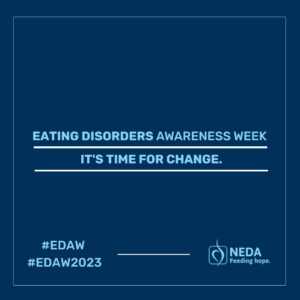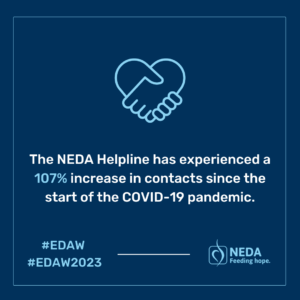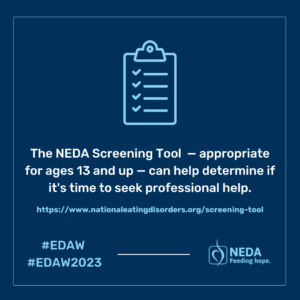by Mauli Chopra
“I’ve been big and small. And big and small. And big and small again.”
Mitski
I grew up in a 3rd world country known for its population, pollution, and above all poverty. India is a beautiful country with complex architecture and generous culture that is often misrepresented or not represented at all in Western culture. My life has always consisted of ill-eating habits that have remained constant both in India and America. When I first stepped onto a plane, I was a child, and when I stepped off the plane, I was an immigrant. The label follows you around, haunting you and waiting in the corners of the happiest moments in your new life. The label turns into a traumatic experience, where you wake up every day, fighting against memories of a home you left behind to live in a country that wants to build walls to keep you out.
I have felt guilty all my life. Guilty about leaving, guilty about conforming to outdated standards for girls, for eating too much, for eating too little, and begging others for forgiveness because I merely exist; faults and all. Struggling with the privilege of having clean water and an abundance of food while my country has limited resources. South Asian culture promotes modesty and sexist double standards. It can be easy for brown girls to lose themselves while trying to find their individuality amidst a conformity culture. To all the brown girls who have thick body hair, yellowing teeth, and difficult stories. You are not alone.
National Eating Disorders Association (NEDA) Week is celebrated the last week of February every year to raise awareness and support those with eating disorders. The NEDA organization often holds recovery marathons across the U.S., panels with informational speeches, and more resources for those in need. This week and beyond is the time to break down stereotypes. Men, women, nonbinary, and other individuals are encouraged to choose recovery. Anyone can have an eating disorder, it is not specific to a gender, ethnicity, sexuality, or race.
This is the year I graduate from high school, this is one of the moments my family and I have been waiting for; the sole reason for our immigration– an uninterrupted education. My Common App essay was about my eating disorder and how my recovery was inspired by female authors. I’m a 2-sport varsity athlete so oftentimes, I have struggled with injuries and recovery due to my active lifestyle. Rugby and ice hockey have been impactful experiences that have shown me that my body is capable of doing difficult things, whether it’s playing sports or choosing recovery.
The prompt I chose for my common app essay was, “The lessons we take from obstacles we encounter can be fundamental to later success. Recount a time when you faced a challenge, setback, or failure. How did it affect you, and what did you learn from the experience?” I’d like to share my essay and extend a loving hand through my words to you.
Cheers! The melting pot is a monocultural metaphor where a heterogeneous nation becomes homogeneous. A prime example would be the United States of America where my journey began in 2011.
I am in California and the first word I learn to pronounce with broken English is ‘immigrant.’ The plate and cutlery are set up, my life’s about to get messier and there are no napkins. I grew up in one of the poorest countries in the world where malnourished babies clung to their mother’s dry breasts and men covered in dirt sat around a fire, the smoke shielding their deaths.
Despite the poverty around me in India, I was fed 3 times a day. My plate was licked clean and not an ounce of food was ever discarded. There was no such thing as leftovers when you witnessed starvation firsthand. Pollution and malnutrition were unwelcome guests of my childhood, the murderers of my people, our stories never written or heard. Yet.
7 years later, I felt myself being chewed up, stuck in the ridges of American teeth as I sat in front of a doctor in Ohio that diagnosed me with anorexia. It wasn’t vaccination season, and yet I felt a prick of cultural shock. Amongst the green juice diet advertisements and tv shows starring misrepresented Indian characters, I questioned my existence and memories of India.
Memories of my present self and others from my past blurred together, sandwiches clogging the toilets, toddlers digging through trash, menstrual cycles vanishing, female classmates with bruises up their thighs, shivering during summer, the violent riots during monsoon season. At the precipice of my destruction, I started fainting and my heart rate slowed down to 50. My white blood cell count depleted and I had deficiencies that required continuous blood tests. My athleticism dwindled down to below average and my academics became an unnavigable responsibility. My father, the cook of the household, watched as annual doctor visits turned into psychiatric hospitals, surgeries for easily broken bones, ER visits, and nutritionists.
The American dream became my nightmare and the melting pot scorched me. Was I ever going to stop chewing and finally swallow?
Ottessa Moshfegh, Emily Dickinson, and Sylvia Plath books kept me company as I sat in the hospitals. I read about female rage, assault, joy, pride, and above all, determination. Literature written by women saved me because my identity were fragments of the women that had persevered and inspired me. I was one of the lucky ones. I had made it out of India where the things I witnessed had not yet been written about and I knew then, amongst the pages, that I was going to recover and be the one to write them. I was now in a world that consisted of me getting clean water, playing sports, and even being the first in my bloodline to apply to college.
I chose recovery in May 2021. My existence is more than just the salt and pepper to America’s melting pot. Recovery has granted me freedom from stereotypes, ethnic window dressing, and my eating disorder. The more you chew racism, mental illness, the past, fear, and stigma, the harder it is to swallow and leave the table. Diversity doesn’t grow from one singular pot, it only traps stories of overcoming obstacles that deserve to be amplified, particularly my immigration journey. Redefining metaphors in my personal life allowed me to transform my mentality and society’s perspective on me. I’m no chef, but I am the author of my life. Feeling comfortable in your own skin and striving to make personal change allows you to be fierce enough to make a change in the world one day too. My words are proof of my own determination.
I’d like to propose a toast (water) to conclude this narrative, here’s to writing uncomfortable truths, books, recovery, and trading in the past for a new journey, college.
Recovery is a life-long commitment but you are worth it. Your body is worth your love. I hear you, I see you, and we are not alone. Listed below are links to organizations and helplines that can guide you in your journey.




